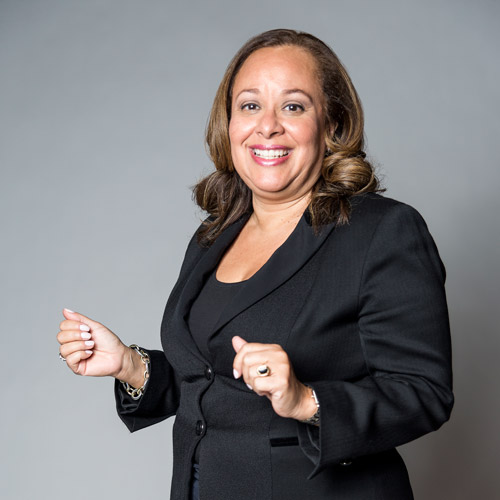Talk to Lou Nieto for more than five minutes, and you’ll likely hear him compare business to baseball. “Even All-Stars only get hits one of every three at-bats. It takes a whole team,” he says. “You can’t count on one player to hit .900 and score all the runs.”
That philosophy guided Nieto through a renowned business career in consumer-packaged goods that took him from Quaker Oats to Kraft, to Dean Foods, and then to ConAgra, where he orchestrated a major turnaround. When health concerns forced Nieto into retirement in 2009, he was leading ConAgra’s biggest business unit—a complex, multibillion-dollar endeavor with more than six thousand employees.
It’s the career he built, developing expertise over three decades, that has prepared Nieto to serve as a director on the corporate boards for both Ryder Systems, Inc. and Auto Zone, Inc. “People often ask me how they can get on a corporate board, and my response often puzzles them,” he says. “There’s not one thing you can do. This was never my career goal. My goal was to run a Fortune 500-sized business, and that’s what gave me the skills that made me attractive to board-nomination committees.”
Now, Nieto is sitting on a nomination committee himself (at Auto Zone) and has stepped into a director seat at Ryder, as chair of the finance committee. After serving on two committees, Nieto moved to the finance chair role in 2013. While leading a complex business unit prepared him for board service in general, several years as a board director prepared him for a committee chair role.
“It goes back to baseball,” he says. “A casual observer can see the score and know if a team is doing well, but it takes a passionate fan to know what’s really going on. If you don’t understand the strategy, you don’t know if the team actually executed well or not.” Only after interacting with company executives and other directors over many years to learn the ins and outs of both the company and its industry was Nieto ready to chair Ryder’s finance committee.
The board leadership role is especially crucial because Ryder typically completes one to two acquisitions per year and considers various others. As chair, Nieto is the first person senior managers approach for guidance and input during this process. The conversations leverage his experience in mergers and acquisitions from his own corporate career and draw upon his understanding of each business, its goals, and the strengths and weaknesses of senior management members. Nieto says he has carefully developed good relationships with those executives, which he cultivates via phone and e-mail between quarterly meetings.
“Even All-Stars only get hits one of every three at-bats. It takes a whole team.”
At Auto Zone, Nieto serves on the audit and the nominating and corporate governance committees. Over the last two years, he’s helped recruit and select four new board members—40 percent of the group. The committee is responsible for working with an outside firm to identify directors brought before the board for approval.
Nieto has heard some negative feedback from his fellow Latinos because none of Auto Zone’s new board members are Hispanic. “My goal was to remain open to Latino candidates, and we looked at some, but we have an obligation to select the best candidates for the board and for the company regardless of ethnicity. We did that. My job is to uphold my responsibility to my shareholders, not force a Latino candidate on them at any cost,” he explains.
Nieto recognizes the need for more Latinos in the boardroom and is a passionate advocate for Latino leadership development. In fact, his approach to the boardroom dilemma facing Latinos is a unique one. It starts, he says, with understanding the criteria. Most Fortune 500 companies want an active Fortune 500 CEO. There are about six Latinos that qualify. The second choice is an active CFO. Only ten more Latinos make that cut. Then, boards pursue business unit presidents, opening board seats to maybe forty or fifty more Latinos.
“The way to get more Latinos on corporate boards is to convince others that the criteria should be broader. We should also consider leaders of mid-size revenue companies between $500 million and $1 billion,” he says. Doing so dramatically increases the pool of Latino talent. Nieto also believes broadening board criteria would benefit corporate America. It’s an idea that he’s championed on both of his boards, and so far, it’s one that has been met with only positive feedback.
In addition to his work on corporate boards, Nieto serves on the boards for two companies in which he’s invested with private equity partners. He bought Eddy Packing in 2011 and added Food Evolution in 2014. With the remainder of his time, Nieto and his wife support disadvantaged youth, working with organizations that provide scholarships and other funding to inner-city students. It’s that work—and not his corporate endeavors—that Nieto emphasizes at home to his daughters.
Although Nieto is playing in the big leagues, he stresses that he got there by focusing on fundamentals and playing the game the right way. “It’s okay to identify the fact that you’d like to serve on a corporate board after a long career in business,” he says. “But once you’ve thought about it, put it out of your mind and just focus on becoming the best, most multi-skilled leader in your industry.”
Step Into my Office
 Lou Nieto meets with Ana Dutra
Lou Nieto meets with Ana Dutra
Ana Dutra: How did you get your very first board seat? Tell us your story.
Lou Nieto: I was approached in 2006 by a “big four” executive search firm. The search firm was very familiar with me because they had placed me once into a senior executive role. The opportunity was with Ryder System. I interviewed with several directors and was impressed with their corporate governance standards and business model. I felt the company had significant growth opportunities. The critical factor in the recruitment process was the company’s CEO. We had immediate, good chemistry. We had both attended Catholic high schools in Chicago, shared a common university alma mater, and supported the White Sox. The CEO was also very interested in my turnaround experience.
AD: Tell us about a situation where being a Latino director allowed you to bring a new perspective into a corporate issue or decision?
LN: My Latino cultural background is a key part of my perspective. Consequently, it affects all of my assessments and opinions on all issues. I have always been considered an executive who is concerned about people and treats employees with respect. I suspect that this managerial approach influences my input and perspectives on board issues.
AD: When assessing a potential board role, what factors do you consider, and what is non-negotiable to you?
LN: There are two key factors. First, I regard any board opportunity as a major financial investment. This is a reality because Fortune 500 companies require you to make a significant investment in their stock over the first few years. Therefore, I look for businesses that are leaders in their sectors with significant growth potential. Second, I focus on the existing board members. I try to understand their perspectives regarding people and their career experience. I seek to serve with fellow board members who value people and from whom I can learn. I’m fortunate to serve on two boards with great, diverse memberships.

